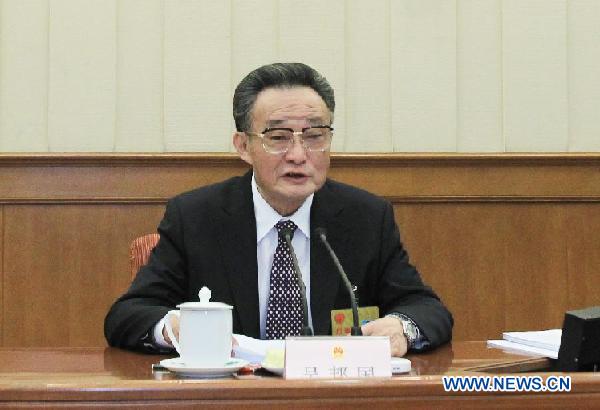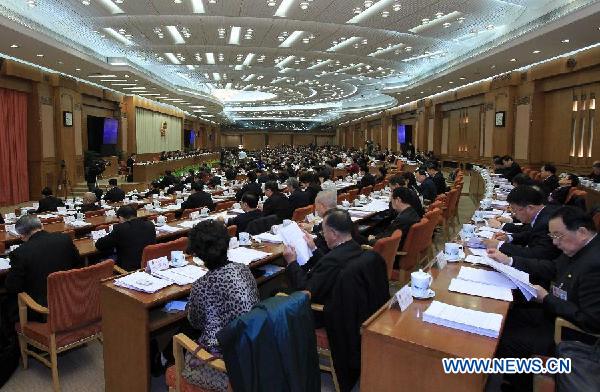
BEIJING, Dec. 31 (Xinhua) -- The National People's Congress (NPC) Standing Committee, or China's top legislature, ended Saturday its bimonthly session, adopting amendments to the Law on Occupational Illness Prevention and Control and the Macao Basic Law.
Top legislator Wu Bangguo presided over the closing meeting which was attended by 144 members.
President Hu Jintao signed presidential decrees to promulgate the two amendments.
The amendments to the Law on Occupational Illness Prevention and Control makes it clear that employers bear the full responsibility of the prevention and treatment of occupational illness and strengthens the supervision of related departments, Wu said.
The amendments also simplify the occupational illness diagnosis procedure and labor arbitration.
Wu said that draft interpretations on two annexes to the Basic Law of the Macao Special Administrative Region (SAR) clarify the methods for the selection of the SAR chief executive as well as for the formation of the SAR Legislative Council.
Wu also added that this is the first time the NPC has performed the interpretation right regarding the Macao Basic Law.
Wu reiterated the central government's determination to implement the "one China, two systems" policy and support the SAR government and the chief executive.
"We believe that the Macao SAR can maintain long-term stability and prosperity and properly handle the selection of its chief executive and council formation based on the deliberations of the NPC," Wu said.
The legislature also decided to further review amendments to the Criminal Procedural Law at the 5th session of the 11th NPC in 2012, and it adopted a decision on strengthening anti-terrorism efforts.
The amendment to the Criminal Procedural Law supplements and improves the criminal procedure system in regards to evidence, defense and trial procedures, Wu said.
The legislature ratified two treaties between the Chinese and Italian governments regarding extradition and mutual judicial assistance in criminal cases.
The legislature approved a decision to appoint Wang Xia as minister in charge of the National Population and Family Planning Commission.
The NPC also heard reports on the transformation of the economic development mode and the development of the tourism industry.
Wu urged lawmakers to summarize effective work experience and practices and strive to boost work quality in handling all motions.
He also called for making full preparations for the 5th session of the 11th NPC, which was decided to be held on March 5, 2012.
Also on Saturday, the NPC Standing Committee held a special lecture on new features of the changing international situation and new challenges and opportunities to China.
Wu presided over the lecture given by Huang Renwei, deputy president of the Shanghai Academy of Social Sciences.
Huang said, China's diplomatic work maintained the stability of the country's surrounding environment, developed relations with major world powers and strengthened cooperation with emerging economies.
The world's dominant course is one of peace and development and the country's strategic opportunities still exist, Huang said.
China should carefully study the new problems and challenges brought by the changes in international politics and economics, and take advantage of strategic opportunities, Huang said.


